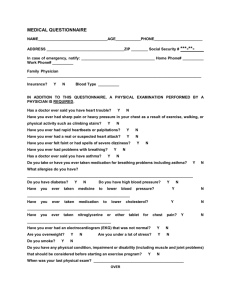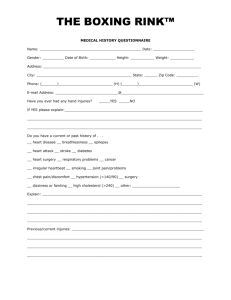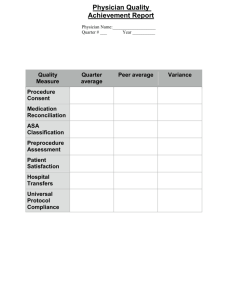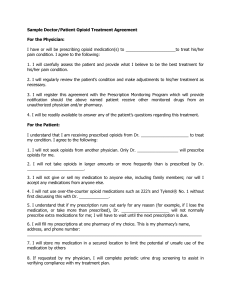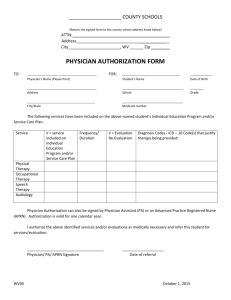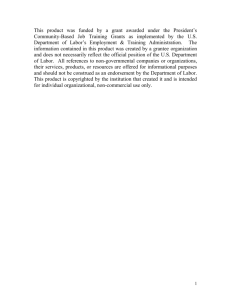Expectations the physician may want to convey to the patient
advertisement
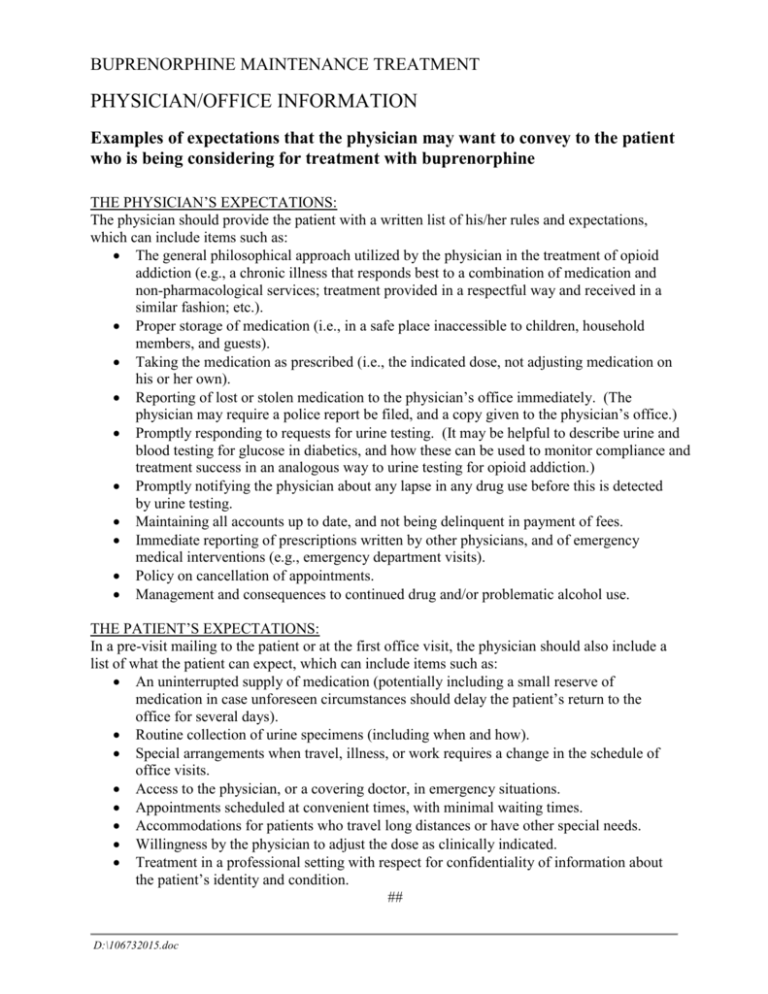
BUPRENORPHINE MAINTENANCE TREATMENT PHYSICIAN/OFFICE INFORMATION Examples of expectations that the physician may want to convey to the patient who is being considering for treatment with buprenorphine THE PHYSICIAN’S EXPECTATIONS: The physician should provide the patient with a written list of his/her rules and expectations, which can include items such as: The general philosophical approach utilized by the physician in the treatment of opioid addiction (e.g., a chronic illness that responds best to a combination of medication and non-pharmacological services; treatment provided in a respectful way and received in a similar fashion; etc.). Proper storage of medication (i.e., in a safe place inaccessible to children, household members, and guests). Taking the medication as prescribed (i.e., the indicated dose, not adjusting medication on his or her own). Reporting of lost or stolen medication to the physician’s office immediately. (The physician may require a police report be filed, and a copy given to the physician’s office.) Promptly responding to requests for urine testing. (It may be helpful to describe urine and blood testing for glucose in diabetics, and how these can be used to monitor compliance and treatment success in an analogous way to urine testing for opioid addiction.) Promptly notifying the physician about any lapse in any drug use before this is detected by urine testing. Maintaining all accounts up to date, and not being delinquent in payment of fees. Immediate reporting of prescriptions written by other physicians, and of emergency medical interventions (e.g., emergency department visits). Policy on cancellation of appointments. Management and consequences to continued drug and/or problematic alcohol use. THE PATIENT’S EXPECTATIONS: In a pre-visit mailing to the patient or at the first office visit, the physician should also include a list of what the patient can expect, which can include items such as: An uninterrupted supply of medication (potentially including a small reserve of medication in case unforeseen circumstances should delay the patient’s return to the office for several days). Routine collection of urine specimens (including when and how). Special arrangements when travel, illness, or work requires a change in the schedule of office visits. Access to the physician, or a covering doctor, in emergency situations. Appointments scheduled at convenient times, with minimal waiting times. Accommodations for patients who travel long distances or have other special needs. Willingness by the physician to adjust the dose as clinically indicated. Treatment in a professional setting with respect for confidentiality of information about the patient’s identity and condition. ## D:\106732015.doc
